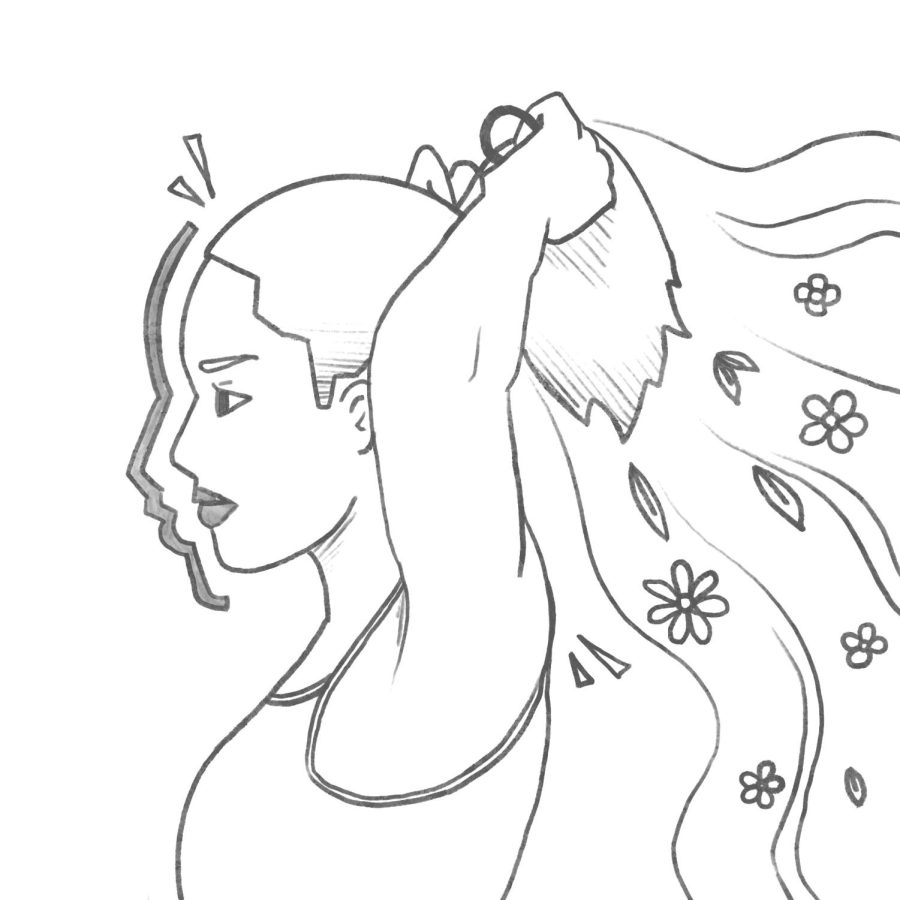A Case of Externalized Masculinity
April 9, 2022
Femininity is a powerful thing. It can be a liability or be used as a weapon, but more often functions as the former. The logical conclusion is to cut one’s losses and abandon the femininity used against you in order to make it in a man’s world. Girls are encouraged to put their pants on, tie their hair up, and demand what they want in order to get the respect more easily granted to the men in the room. Women need to “man up,” because if they don’t, any femininity will be the chink in the masculine armor that was built to earn courtesy historically withheld from them.
Women intentionally embodying stereotypically-masculine traits is common in our culture for many reasons, but most prominently because the practice serves as a survival technique in a patriarchal society. A rejection of archetypal femininity infiltrates girls’ childhoods through the “not like other girls” trope: a superficial male fantasy of a girl who can hang with the guys while still being able to walk a Victoria’s Secret runway. Even as children, it is injected into girls’ minds that “girly” actions such as shopping, vanity, and dressing up are to be associated with frivolousness. We consider these clichéd feminine characteristics like heels, lipstick, and jewelry as indicative of a woman who is so insecure that she feels the need to overcompensate in a materialistic manner. To be taken seriously, a woman must act more like a man.
In a high school setting, male-associated or male-dominated activities are demonstrations of this phenomenon. Examples include debate, where it’s not uncommon for a female debater to intentionally lower her voice to assert her confidence. Sports are another, where we see female athletes tend to masculinize themselves in behavior on the field in regards to mannerisms and interactions with other players. In fields that were not created with women in mind, such as politics or the workforce, there becomes a sense that we need to play by men’s rules, if we want to win at their game.
The instillation of these terms in our daily lives raises the questions “What even are masculinity and femininity?” and “What exactly is each of their roles in society?” While these constructs do not inherently exist and are used to train people to act a certain way, what’s important to note is that these perceptions are currently deeply embedded into our society. We believe men to be innately aggressive, and women to be demure; men as breadwinners, women as caretakers. However outdated they may seem, we must still attempt to undo the effects of these patriarchal conceptions as they influence our everyday life.
This is not a critique of anyone who strays from or abides by these presumptions; there are women who take on these qualities because they want to. However, we must consider why we have a society in which an intentional deviation from these standards by women has not only become commonplace, but is a requirement to be treated with respect. As Women’s History Month comes to a close, this notion of “strong, independent women” comes up repeatedly. There is a need to show your “female” dominance, to prove your competence. “Yes, I’m a woman. Yes, I’m just as good as a man. And yes, you should consider me as such.” The question remains though: at what point do women need to become “less women” to be considered as women enough?
This piece also appears in our March 2022 print edition.











